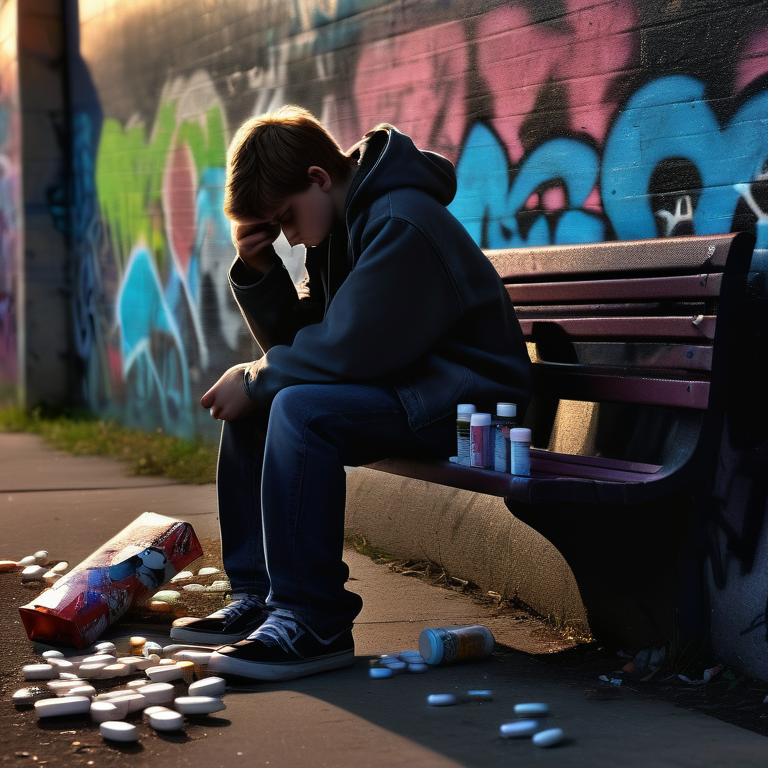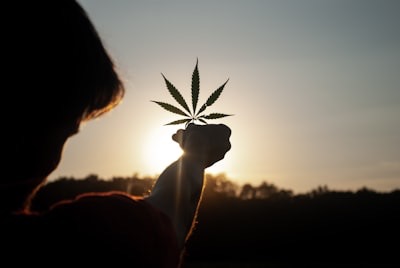Key Insights: Most Used Drugs in Teens Today

Key Highlights
- Teen drug use rates are declining, with the of illegal drugs aside from marijuana being lower than it has been in over twenty years among youth.
- Teens often use drugs and alcohol to fit in or to cope with mental health issues, such as depression.
- The most commonly used drugs by teens are marijuana, cocaine, stimulants, painkillers, prescription drugs, spice and K2, heroin, crystal meth, MDMA, hallucinogens, DXM, and inhalants.
- Marijuana use in teens has declined despite laws legalizing recreational marijuana use in some states.
- Teen cocaine use is less common marijuana use among adolescents.
- Stimulant drugs like Adderall and Ritalin are commonly used by teens.
Introduction
Teenage drug abuse is a significant concern in today’s society. While overall teen drug use has declined in recent years, some teenagers continue to experiment with and abuse drugs and alcohol. This can have consequences on their health, well-being, and future prospects. It is crucial for parents, educators, and society as a whole to understand the reasons behind teen drug use and the most commonly used drugs among teenagers in the last year.
Many factors contribute to teen drug use, including peer pressure, the desire to fit in, and the need to cope with mental health issues. Teens may turn to drugs as a way to escape from their problems or to seek temporary happiness and pleasure. Understanding the specific drugs that are commonly used by teens can help in identifying and addressing the issue effectively.
In this blog, we will explore the key insights into the most used drugs in teens today. We will delve into the reasons why teens use drugs, the different drugs commonly used by teenagers, and the impact of drug use on their health and life. Additionally, we will discuss preventive measures, support systems, and the legal consequences of drug use for teens. By gaining a deeper understanding of these issues, we can work towards creating a safer and healthier environment for teenagers.
Understanding Teen Drug Use Today

Teen drug use is a complex issue that involves various factors. While overall rates of drug use among teens have been declining, it is still important to understand why some teenagers engage in drug consumption. One of the main reasons is to cope with mental health issues such as depression or anxiety. Drugs may provide temporary relief from these conditions and make teens feel better in the short term. However, this behavior can have long-term consequences on their mental health and overall well-being.
The Shift in Teen Drug Consumption Patterns

Over the years, there has been a shift in the patterns of teen drug consumption. According to survey results, the use of illegal drugs aside from marijuana has been declining among 12th graders. This decline is significant and reflects a positive trend in reducing illicit drug use among teens. However, it is essential to remain vigilant as some teenagers continue to experiment with and abuse drugs, including cocaine. The National Survey on Drug Use conducted by NIDA found that only 2 3% of 12th grade students, 1 5% of 10th graders and 0 8% of 8th graders have used cocaine in the last year. Understanding these shifting consumption patterns, including the low prevalence of cocaine use among 8th graders, can help in developing targeted prevention and intervention strategies to address the issue effectively.
Factors Influencing Drug Use Among Teens

Several factors influence drug use among teens. Peer pressure plays a significant role, as young people may feel the need to try drugs to fit in with certain social groups. Additionally, adolescents are more prone to seeking exciting experiences, and drug use can be seen as a form of experimentation. Teens who struggle with mental health issues such as depression may use drugs as a way to self-medicate and alleviate their symptoms. Finally, some adolescents may use drugs to cope with the distress associated with past trauma. It is essential to address these factors and provide support systems for teens to prevent drug use and promote their overall well-being.
- Peer pressure can influence teens to try drugs in order to fit in with certain social groups.
- Young people are more prone to seeking exciting experiences, which can lead them to experiment with drugs.
- Teens with mental health issues, such as depression, may use drugs to self-medicate and alleviate their symptoms.
- Some adolescents may use drugs as a way to cope with the distress associated with past trauma.
Major Drugs Popular Among Teens Most Used Drugs in Teens
Several major drugs are popular among teens today. These include marijuana, cocaine, stimulants, painkillers, prescription drugs, spice and K2, heroin, crystal meth, MDMA, hallucinogens, DXM, and inhalants, according to the National Institutes of Health. Each of these drugs has different effects and rates of use among teenagers. Understanding these drugs and their impact on teens is vital in addressing the issue of drug abuse effectively and providing appropriate support and prevention measures.
Cannabis: The Leading Choice

Among the major drugs used by teens, cannabis is the leading choice. Despite laws legalizing recreational marijuana use in some states, marijuana use among teens has declined. However, it is still a popular drug among teenagers, with a significant percentage of 12th-grade students using marijuana on a daily basis, according to data from the National Survey on Drug Use. The ease of access and the perception of reduced risk associated with marijuana use contribute to its popularity among teens. It is crucial to educate teens about the potential risks and consequences of marijuana use and provide support for those struggling with marijuana addiction.
Prescription Medications: A Growing Concern
Prescription medications, specifically painkillers, are a growing concern in teen drug abuse. Many teens abuse narcotic painkillers, such as Tramadol, Vicodin, and Oxycodone, which are commonly prescribed for chronic pain. The misuse of prescription painkillers can have serious health consequences and can lead to addiction. According to the National Institute on Drug Abuse, a significant percentage of 12th-grade students have used prescription drugs in the past year. It is essential for parents, educators, and healthcare professionals to be vigilant and educate teens about the dangers of prescription painkiller abuse.
Synthetic Drugs: Emerging Threats

Synthetic drugs, such as synthetic marijuana, pose emerging threats to teen drug abuse. These drugs are created by spraying herbs with cannabinoid chemicals and were previously legal and readily available for purchase, often found in convenience stores. However, legislative measures have led to a decline in use rates among teens. It is important to stay informed about emerging synthetic drugs and their effects on teenagers to effectively address the issue and provide appropriate prevention and intervention strategies.
Alcohol: The Underestimated Substance

While not classified as a drug, alcohol is an underestimated substance when it comes to teen drug abuse. Underage drinking is a significant concern among high school seniors and teenagers in general. Alcohol consumption can have serious health and social consequences, including impaired judgment, increased risk of accidents, and long-term health problems. It is crucial to educate teens about the risks associated with alcohol and provide support systems to prevent underage drinking and promote responsible alcohol consumption.he Impact of Drug Use on Teen Health and Life
Teen drug abuse can have severe consequences on their health and overall well-being. Drug abuse can lead to physical and mental health issues, including substance use disorders. In addition, drug use can negatively impact academic performance, leading to a decline in grades and potential dropout. It is important to address the impact of drug use on teens and provide appropriate support and treatment for those struggling with drug addiction.
Short-Term Repercussions of Teen Drug Use
Teen drug use has significant short-term repercussions. Drug abuse can lead to increased blood pressure, which can have serious health consequences. Overdose deaths are a major concern among teens who engage in drug abuse. Additionally, drug use can lead to the development of substance use disorders, which can have long-lasting effects on their physical and mental health. It is crucial to provide education, prevention programs, and access to treatment for teens struggling with drug addiction.
| Column Name A | Column Name B |
| Increased blood pressure | Serious health consequences |
| Overdose deaths | High risk of fatality |
| Substance use disorder | Long-lasting physical and mental health effects |
Long-Term Effects on Health and Well-being
In addition to the short-term repercussions, teen drug use can have long-term effects on their health and well-being. Substance abuse during adolescence can increase the risk of developing mental health disorders later in life. Drug use can also impair brain development, leading to cognitive and behavioral issues. Long-term drug abuse can have detrimental effects on various aspects of their lives, including relationships, education, and employment opportunities. It is essential to provide comprehensive support and treatment for teens battling drug addiction to minimize the long-term impact on their lives.
Preventive Measures and Support Systems
Prevention is key in addressing teen drug abuse. By implementing preventive measures and providing support systems, we can create a safe and supportive environment for teenagers. Drug education programs, parental involvement, and community-based interventions play a crucial role in preventing drug use among teens. Additionally, access to addiction treatment and rehabilitation services is essential for those struggling with drug addiction. By focusing on prevention and providing comprehensive support, we can effectively combat teen drug abuse and promote their overall well-being.
Role of Parents and Guardians in Prevention
Parents and guardians play a critical role in preventing teen drug abuse. By being actively involved in their child’s life and providing a supportive and open environment, parents can make a significant impact. Parental influence and communication are vital in educating teens about the dangers of drug use and promoting healthy behaviors. Drug education programs targeted at parents and guardians can provide valuable information and resources to help them in preventing drug abuse among teenagers. It is important for parents to foster open dialogue, trust, and ongoing education to help their teens make informed decisions and avoid drug abuse.
School and Community-Based Interventions
Schools and communities also play a crucial role in preventing teen drug abuse. Community programs and initiatives can provide education, resources, and support for teens and their families. Schools can implement drug education programs, awareness campaigns, and counseling services to address the issue effectively. By fostering a positive and supportive environment, schools and communities can create a strong network of prevention and intervention strategies to combat teen drug abuse. Collaboration between schools, parents, and community organizations is essential for the success of these interventions.
Accessing Professional Help and Rehabilitation
Accessing professional help and rehabilitation services is crucial for teens struggling with drug addiction. Health and human services provide valuable resources and support for teens and their families. Professional help, such as counseling, therapy, and addiction treatment, can address the underlying issues contributing to drug abuse and provide the necessary tools for recovery. It is important to break the stigma associated with seeking help and ensure that teens have access to the support and treatment they need. By providing comprehensive care and rehabilitation services, we can help teens overcome drug addiction and lead healthier, more fulfilling lives.
Legal Consequences of Drug Use for Teens
Engaging in drug use as a teen can have legal consequences. The juvenile justice system addresses drug offenses committed by minors and aims to provide appropriate intervention and rehabilitation. The consequences can vary depending on the severity and nature of the offense, ranging from counseling and community service to probation or incarceration. It is important for teens to understand the legal implications of drug use and the potential impact on their future. By emphasizing the legal consequences, we can deter teens from engaging in drug abuse and promote responsible behavior.
Understanding the Legal Implications
Understanding the legal implications of underage drug use is crucial for teens and their families. Each state has specific laws and regulations regarding drug offenses committed by minors. It is important to be aware of the legal consequences, including fines, probation, mandatory drug education programs, community service, and possible incarceration. By understanding the potential legal ramifications, teens can make informed decisions and avoid engaging in drug abuse. It is also important for parents and guardians to educate their teens about the legal implications and the importance of making responsible choices.
Case Studies: Teens and the Law
Case studies can provide real-life examples of the legal consequences of drug use among teens. Law enforcement agencies often share case studies to educate the public about the impact of drug abuse and the legal actions taken against offenders. These case studies can highlight the potential consequences of drug use, including arrests, court proceedings, and the long-term impact on the lives of those involved. By sharing these stories, we can raise awareness about the legal implications of drug use and deter teens from engaging in drug abuse.
Conclusion
In conclusion, understanding the landscape of teen drug use today is crucial for effective prevention and intervention strategies. Factors influencing drug consumption among teens are varied, with cannabis, prescription medications, synthetic drugs, and alcohol being the major substances of concern. It’s important to address both the short-term repercussions and long-term effects on teen health. Preventive measures, parental involvement, community support, and access to professional help play key roles in combating teen drug use. By staying informed and actively engaging with teens on these topics, we can collectively work towards creating a healthier and safer environment for our adolescents.
Frequently Asked Questions
What Are the Signs of Drug Use in Teens?
Signs of drug use in teens can vary, but some common signs include behavioral changes, physical signs such as bloodshot eyes or changes in appetite, and emotional signs such as mood swings or withdrawal from family and friends. It is important to be aware of these signs and seek help if you suspect your teen is using drugs.
How Can I Talk to My Teen About Drugs?
Talking to your teen about drugs can be challenging but important. Maintain open communication, build trust, and educate them about the risks and consequences of drug use. Focus on prevention and provide support systems to help them make informed decisions and avoid drug abuse.
https://kidshealth.org/en/teens/addictions.html
https://www.ncbi.nlm.nih.gov/pubmed/38628080
https://www.ncbi.nlm.nih.gov/pubmed/38551566
